The earthquakes that claimed 27 lives in one family
November 28, 2023
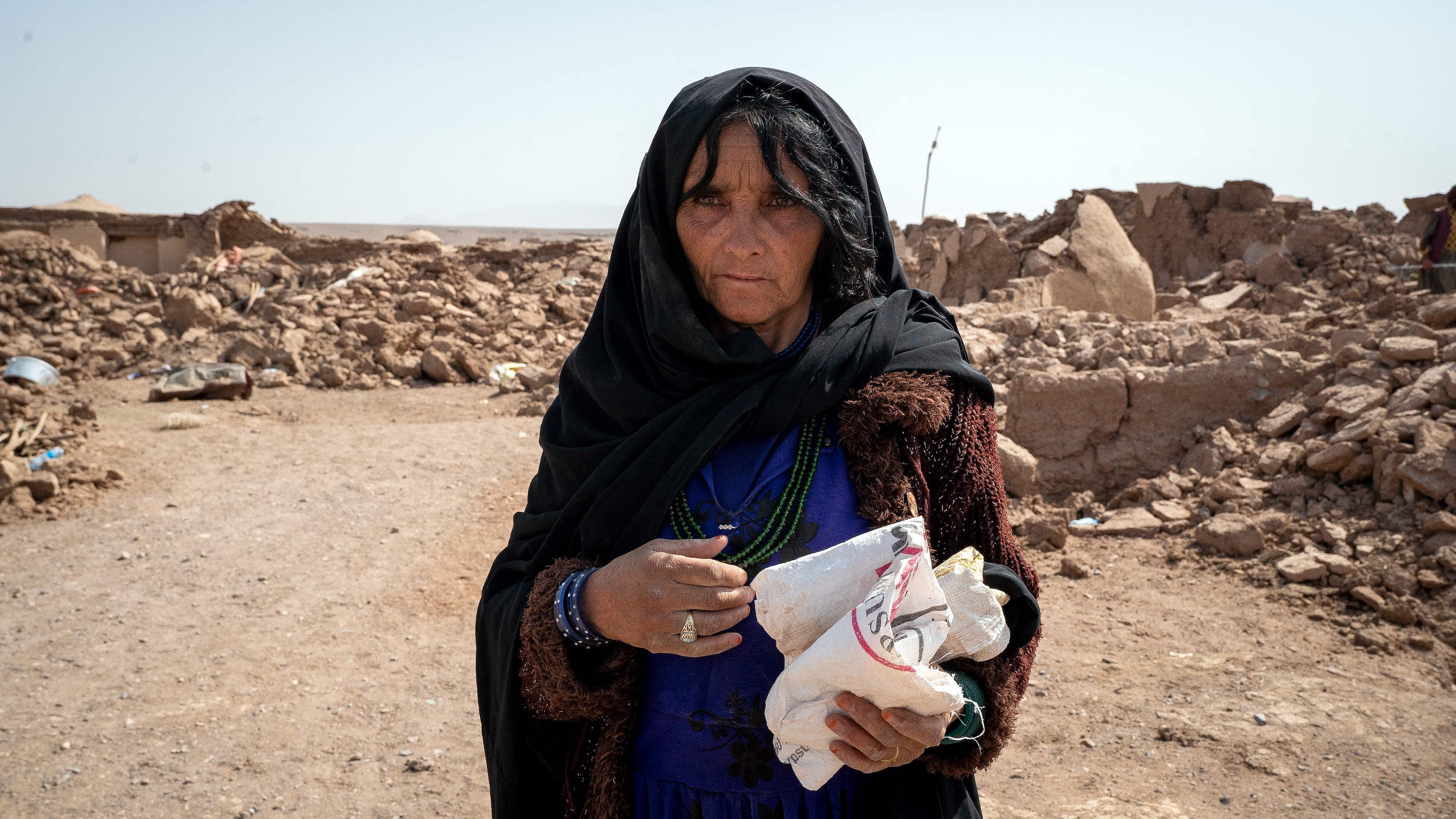
Raiza Gul lost everything - her livestock, house, land, and family members.
"It got dark and dust everywhere. Then things got clear, I saw that my sister-in-law with her son and daughter were under debris up to shoulders. Her son’s nose was running blood, and found him dead," said Raiza Gul, 50, Zinda Jan district.
It was 11 o'clock in the morning. Raiza Gul and her family were all gathered with her loved ones, sitting together, and having their usual green tea. The moment she stepped out of the house to check on the sheep, she heard a rumbling sound and fell to the ground. Her extended family members, including her daughter-in-law and two grandchildren were still inside the room. The house collapsed and they remained under the debris.
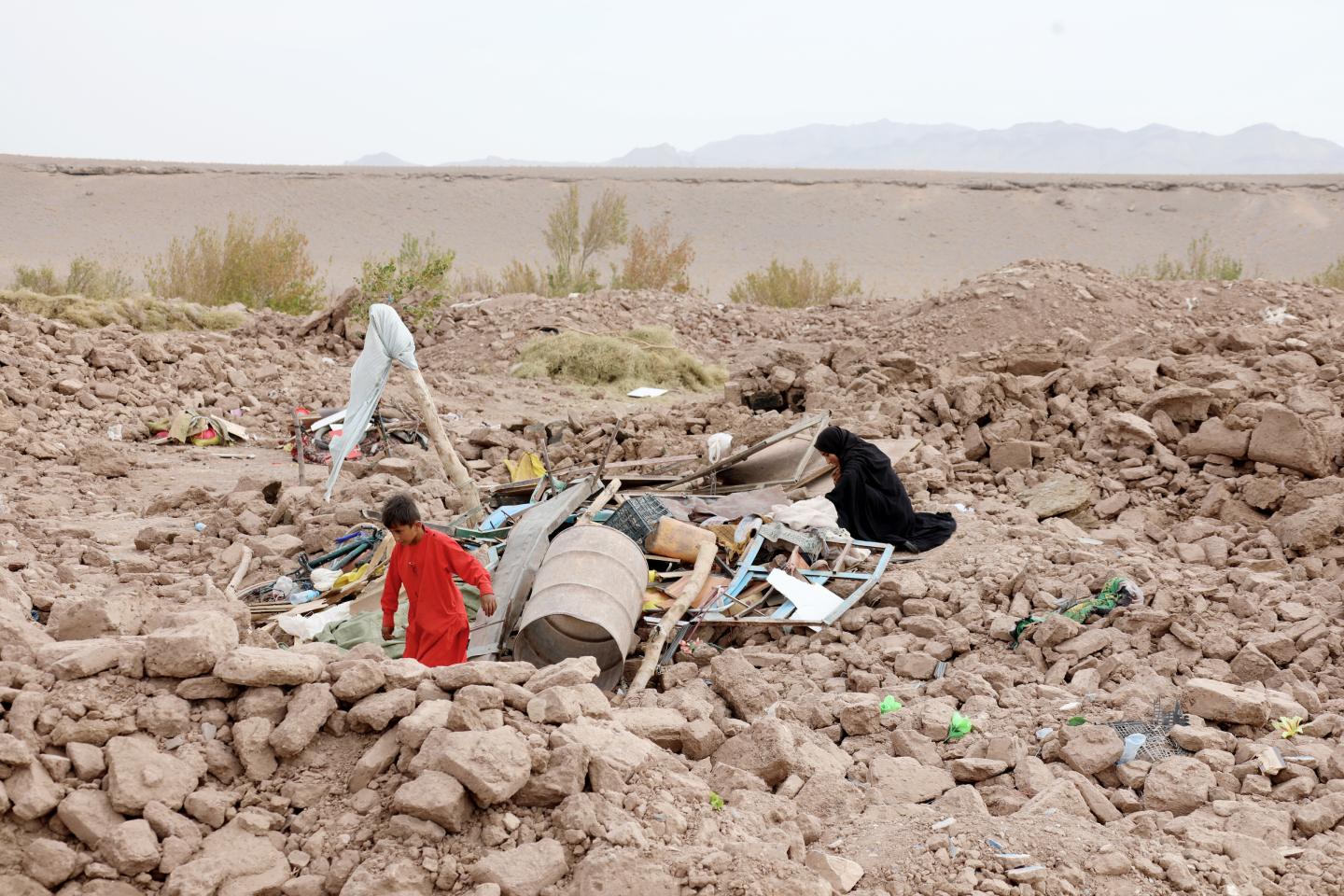
Raiza Gul attempted to remove the sand and debris to save some of them, but another earthquake hit, claiming more lives – her injured family members did not survive the journey to the hospital.
“This time, the wall collapsed onto my feet, 27 members of my family perished, and we lost everything we had.” she said.
The devastating earthquakes that struck Herat province in western Afghanistan left behind scenes of destruction and despair.
Raiza Gul was overwhelmed and burst into tears as she mentioned the horrifying moments of the earthquake and the misery inflicted upon her life.
She lost everything - her livestock, house, land, and family members. With an injured leg that impairs her mobility, “I am an elderly woman with an injured leg stranded by the catastrophe,” she mourned.
A staggering loss of 27 immediate and extended family members has left Raiza Gul shattered. Their village stands empty of any intact houses. She asked for shelter, as it became an immediate necessity due to the cold winter, along with housing equipment to sustain their daily lives and food to stave off hunger.
She and her family had to live in a tent, with no food, water, or shelter. The weather was getting colder, and the wind was blowing the tents away.
"The earthquake took away my loved ones, and now I fear that cold and hunger will claim the remaining few," said Raiza Gul.
Finding shelter, particularly for the sake of his children is also an immediate concern for another villager, Sher Ahmad.
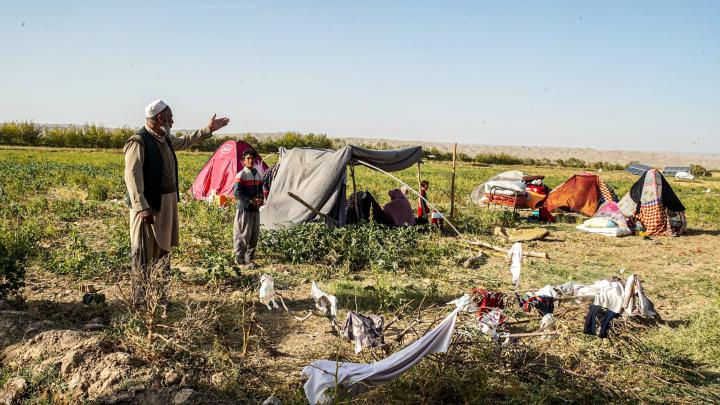
Sher Ahmad, 60, stood with his family, in an open area with no shelter. He is grateful for the survival of himself and his family, however, remains anxious about returning to their damaged house.
“I prefer to suffer the cold nights in the open rather than risk returning to a house that could collapse at any moment,” said Sher Ahmad with a mixed feeling of relief and fear.
“The weather is turning colder, and we need immediate shelter. My house is broken and can crumble at any time,” he added. He also explained that his income of 450 AFN/6.5 US$ is insufficient to rebuild his house, highlighting the dire need for assistance.
The earthquakes, measuring 6.3 in magnitude, left a trail of destruction affecting 2.2 million people, with over 1,400 deaths, 11,000 injuries. More than 8,429 homes have been destroyed, and over 17,000 have been severely and moderately damaged.
Vulnerable groups such as the elderly, children, and people with disabilities, are facing dire situation. The survivors, mostly women and children, are mainly living in tents, exposed to the cold, and in need of water, health care, food, and proper shelter.
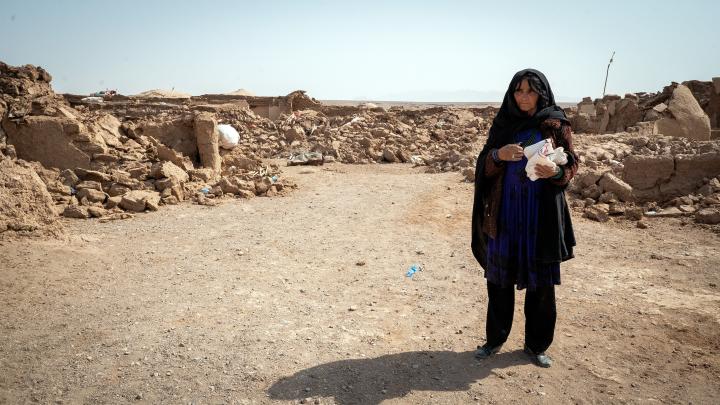
UNDP has issued an urgent appeal for $25 million to support key parts of the recovery plan, which aims to provide transitional and permanent shelter, rebuild basic infrastructure, provide renewable energy, restore water systems, and create jobs and livelihoods. The overarching goal is to not only rebuild but also create resilient communities by empowering women and creating jobs for those who have lost their sources of income due to the disaster.
Raiza Gul and Sher Ahmad are just two of the many stories of the people affected by the earthquakes in Herat province. They need urgent help and support to recover from this disaster and rebuild their lives and livelihoods.
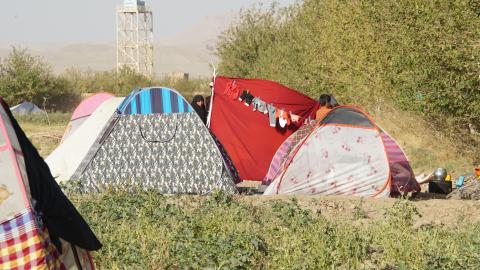
As the situation is critical, UNDP had been taking urgent action to support the earthquake-affected communities to: design and building transitional shelters that are safe and resilient, designing and implementing community cash-for-work programmes to restore livelihoods, retrofitting and solarization of schools and health centres, distribution of solar cookers and establish women-led community kitchens to provide hot meals, essential basic infrastructure, such as schools, clinics, and water systems, and conduct and guide a Post-Disaster Needs Assessment and a Household and Building Damage Assessment to guide a resilient recovery and reconstruction plan.
These activities will not only help the affected communities recover from the disaster, but also enhance their resilience and preparedness for future shocks. UNDP will work closely with the local authorities, and civil society to ensure that the recovery package is inclusive, participatory, and responsive to the needs and priorities of the people.
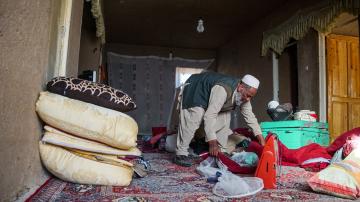
UNDP will also coordinate with other UN agencies and humanitarian partners to ensure a coherent and effective response.
The road to recovery is long, and more support is needed. As winter sets in, UNDP urges global assistance and remains committed to helping Afghanistan rebuild and restore hope in the lives of those affected.

 Locations
Locations